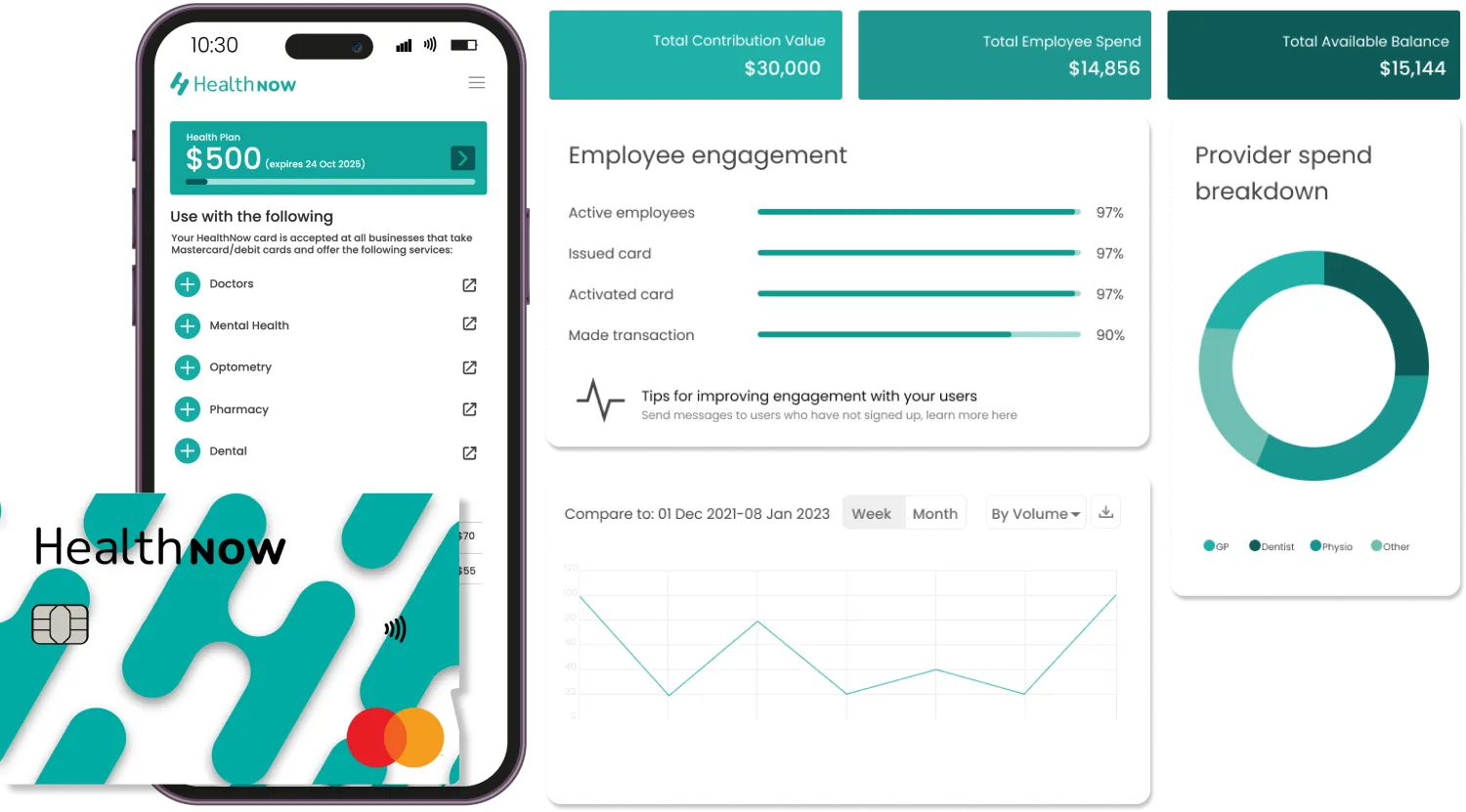In today’s fast-paced world of modern work, employees often find themselves juggling multiple responsibilities, deadlines and commitments at work, which unfortunately can lead to employee health taking a backseat. When employees regularly ignore or delay their health concerns, whether it be a persistent toothache, a pain in their knee that makes it uncomfortable to walk long distances, recurring headaches, or other symptoms, it can have far-reaching consequences on their well-being and overall productivity.
The Toll on Employees and Long-Term Well-Being
When employees neglect their health, they risk exacerbating minor issues that only require simple treatment into more severe conditions that can have long-term implications. Ignoring a toothache, for example, may lead to a dental infection, affecting not only their oral health but also spreading to other parts of the body, potentially leading to systemic health problems. Failing to address immediate health concerns can result in increased pain and discomfort, leading to decreased productivity and quality of life.
Moreover, neglecting immediate health concerns may be indicative of a broader trend of avoiding proactive health measures. When employees consistently put off seeking medical attention, engaging in preventive care, or adopting healthy habits, they open themselves up to a higher risk of chronic illnesses and preventable health issues. The impact on employees’ overall well-being can lead to reduced job satisfaction, increased absenteeism, and decreased morale, ultimately affecting their ability to contribute effectively to the organisation which they’re employed by.
Furthermore, when employees neglect their health, it can contribute to higher personal healthcare costs for the employee in the long run. Recurrent appointments to help manage health conditions and preventable illnesses resulting from delayed healthcare can drive up healthcare expenses, which can put a great strain on a family, especially in today’s financial climate with soaring costs of living and mortgage rates.
Impacts On Employers And Businesses
When employees put their personal health on the back burner, the consequences extend beyond the individuals themselves and can significantly affect the business. The most immediate impact is absenteeism, as employees suffering from health issues may take more sick days or time off to address their worsening conditions. This can disrupt workflow, create staffing shortages, and put additional stress on other team members, leading to decreased productivity and a negative work environment.
Additionally, presenteeism, where employees come to work while unwell, can also be prevalent when personal health is neglected. Presenteeism can be equally detrimental to the business, as employees may be physically present but lack the focus and energy needed to perform at their best. This can lead to lower-quality work, increased errors, and reduced efficiency, impacting overall team productivity and the quality of services or products delivered to clients.
Fostering a Culture of Health and Well-Being
Businesses must take a proactive approach to foster a culture of health and well-being within the organisation in order to best support their employees. This involves promoting employee wellness initiatives, offering comprehensive health benefits, and encouraging a work-life balance that supports employees in taking care of their health needs.
Employers can play a vital role in motivating employees to prioritise their health by implementing additional targeted wellness campaigns. This can include in-office health screenings by external organisations, fitness challenges, mental health support, and educational resources. Regular communication about the importance of proactive health measures and the availability of health benefits can also encourage employees to take advantage of the resources available to them.
While these are great options – for many employees, the way they need to take care of their health best does not fit into a ‘tickbox’ or a general health initiative – and they need the freedom to be able to take control of their health in a completely personalised way appropriate for themselves and their families. This is where employer aid payments are leading the “modern” sector of health benefits.
Employer Aid: Simple Personalised Proactive Healthcare
Employer aid payments stand out over standard one-size-fits-all campaigns or benefits because they offer employees a set annual monetary sum (determined by the employer) to put directly towards their health in the best ways they see fit, recognising that a specific person’s health priorities, and their definition of health, can vary greatly. And for most – it goes far beyond the ‘specialist’ and ‘reactive’ care that private health insurance plans, for example, are limited to.
For many, employer aid enables them to help manage conditions and struggles that they may have been delaying for weeks, months or even years. Many people also already have proactive health and wellness goals they’re actively working towards – and would much prefer to use their allocated health funds to work towards these goals instead of delaying advancing their health in these areas. This can help employees actively work towards preventing future illness or injury, instead of having to take time off to feel poorly at home and only then be entitled to access the health services to try to restore their health.
Accessing employer aid funds works much in the same way as a digital bank account, presented as a digital card on your phone, and being accepted at any eftpos terminal where Mastercard is accepted. As an employer, you can grant access to the entire HealthNow suite of health providers and services – or limit certain services as you see fit. This gives you the confidence of knowing that the funds can only be used for health-related services and appointments while giving your team the control and independence that is well appreciated by employees. You even get a breakdown of how the funds were spent overall within a year – meaning that you gain vital information and insight that can help guide future wellness initiatives that will be well received, instead of those that will be left unused and unappreciated. Any funds that are unused within the allocated year are not charged.
The beauty of employer aid payments is that you’re giving your employees an immediate solution to enable them to seek the health services they want and need without the financial burden that many are struggling with right now. You’re also showing your employees your trust and dedication to their health by enabling them to fully control how they care for their health – something that can have many added benefits to your company in terms of loyalty, satisfaction and retention.








